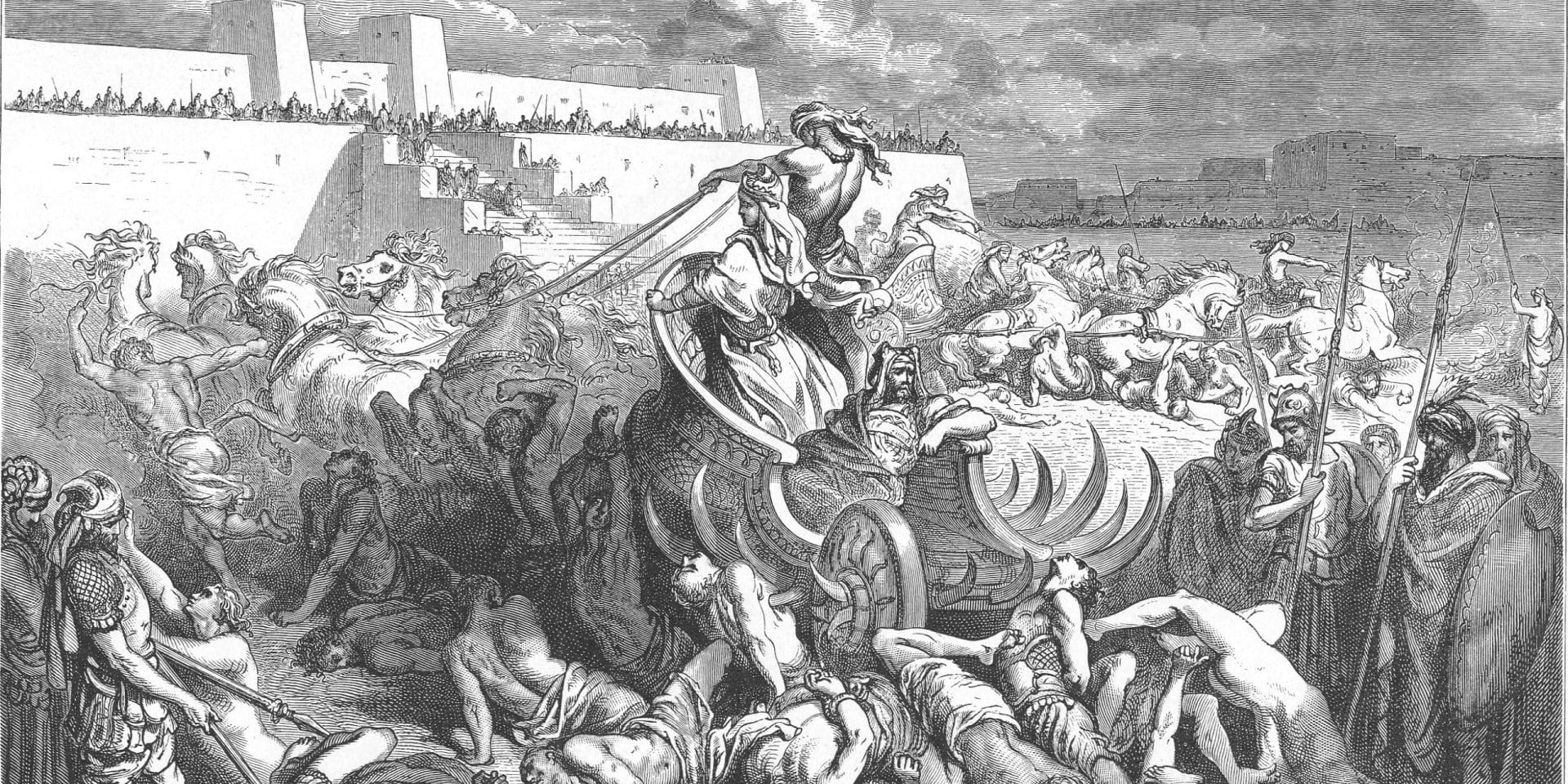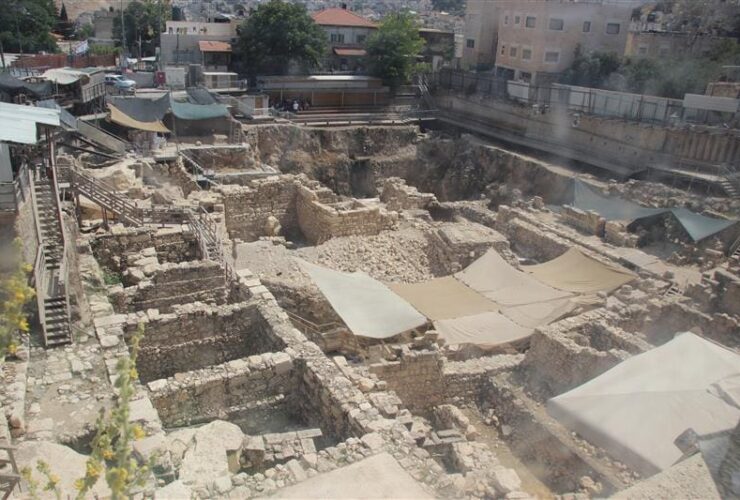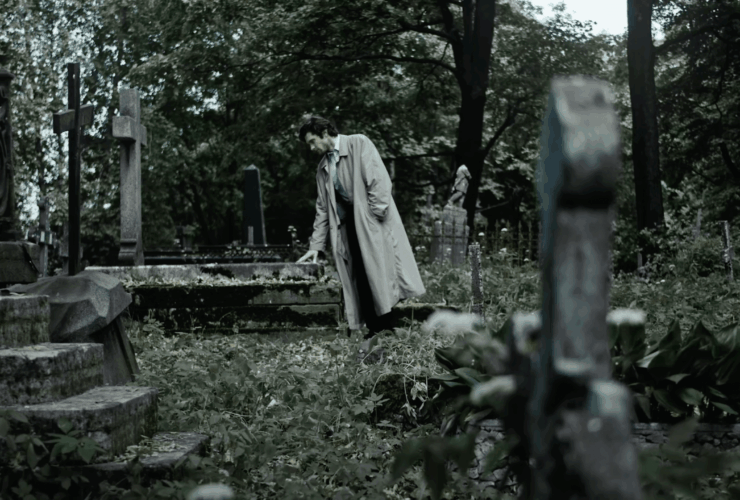Beginning in Exodus, the second book of the Bible, horses are mentioned frequently in the context of war. At first, horses and chariots are the terrifying tools of the enemies of Israel, Pharaoh’s chariot forces, and the deadly iron chariotry of the Philistines for example. In these early days of Israel as a nation they were out-powered in this way, they themselves did not possess a chariotry. As the time of the kings of Israel unfolded it seems clear from the text, and from the archaeological evidence that horsemanship and chariot warfare became a primary goal for the nation.
By the third king, Solomon, we see Israel buying horses in bulk, building chariot cities, and organizing a centralized feeding system for the nation’s horses (1 Kings 4:26-28). A few generations later, during the reign of King Ahab and the ministry of Elijah the prophet, two enemy nations would record on documents, that survive until this day, Ahab and Israel’s unusually powerful chariot force.
The Aramean King who commissioned the Tel Dan Stele had it says that Ahab brought two thousand chariots to the battle, which would represent anywhere from 4,000-6,000 chariot horses.[1] This seems to confirm an Assyrian record, called the Kurkh Monolith, that claims Ahab brought the strongest chariot force in the war, to the battle of Qarqar, again numbering 2,000 chariots.[2]
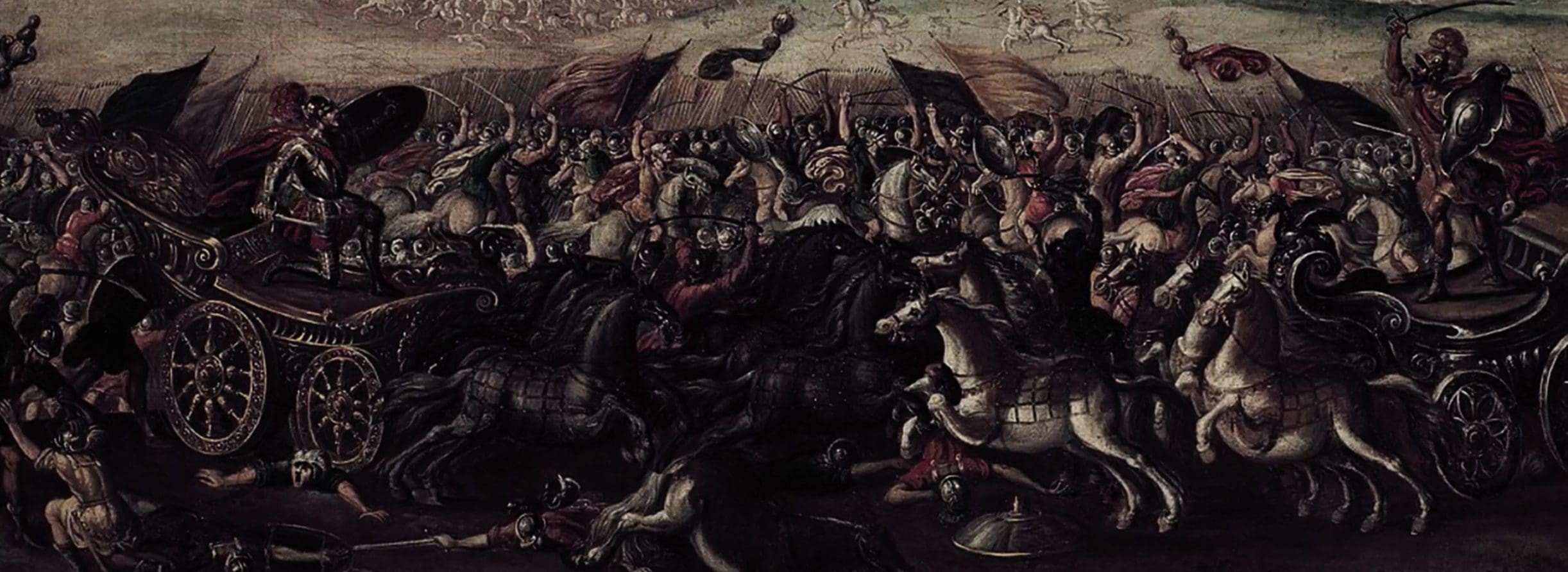
Scholar and modern horse professional Deborah O’Daniel Cantrell has argued for a modern misunderstanding of the archaeological evidence for horses and chariotry in ancient Israel, largely based off a misunderstanding of the needs and training regimes of horses.[3] As most modern scholarship has downplayed the role of horses in ancient Israel. Her work points to the city of Megiddo as an exemplar of a chariot city, showing convincing evidence for horse stabling including horse chewing marks on remaining feeding troughs. As well as interpreting Israel’s 4 and 6 chambered gates as chariot hitching stations.[4] She persuasively argues that without a robust horsemanship program, Israel and Judah would not have lasted as long as they did.
In terms of the importance of chariot warfare, it seems to be reflected both in how often the Scriptures refer to chariots and war horses and their fierceness and their mentions in historical records from the time. Chariot horses were a most feared weapon. They were trained to kill by trampling, and in the words of Cantrell, the were trained to be “addicted to speed” which is what made them both a fearsome weapon and difficult to control in the heat of battle[5].
Horses were also very difficult to kill, with spear, arrow, and sword wounds exciting them further, and with their circulatory system allowing their drivers hours to get them back to their camps to deal with what could be even deadly cuts.[6]
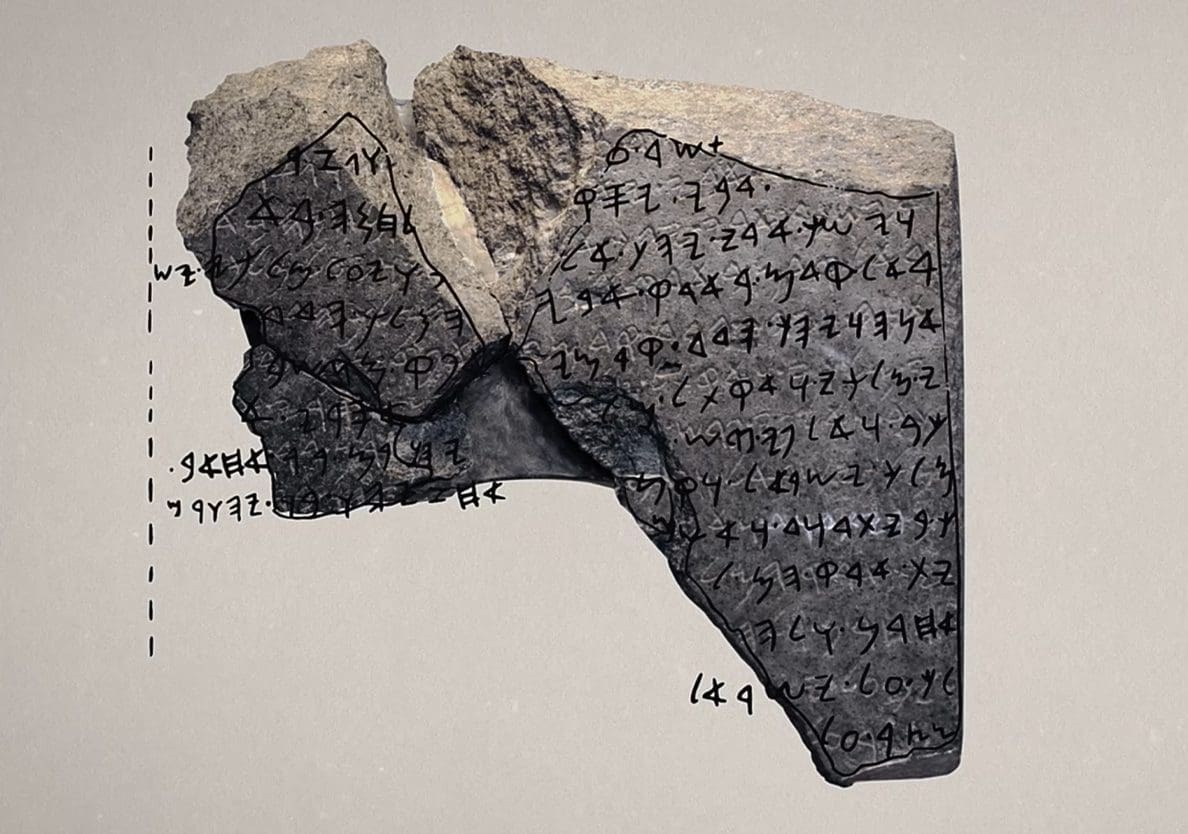
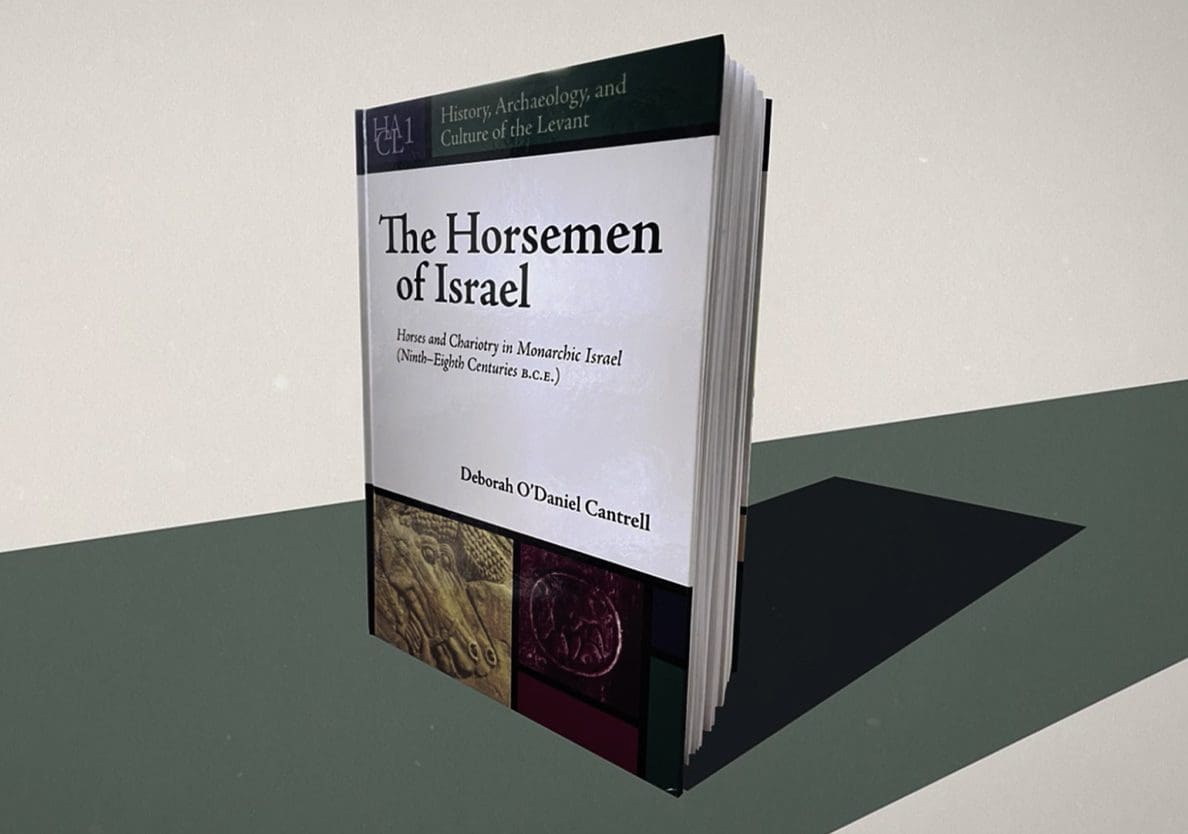
Horses main weakness on the other hand is their stamina. Horses exhaustion levels need to be strictly controlled by their drivers otherwise they would work themselves to death. This meant that to battle successfully, a chariotry would need to have waves of chariots that would fight and retreat to camp for rest. Strategically, this would have had a tremendous impact on battles.
Another weakness of horses is their startle reflex which could send an excited warhorse on an uncontrolled and deadly flight. History seems to show that enemy armies were consistently trying new tactics meant to startle enemy horses while desensitizing their own horses to the same sights, sounds, and smells.[7]
There were parts of the war horses’ apparel that helped with this as well. Horses wore blinders that limited their vision by up to 90%, and multiple bells were incorporated onto their gear. This could have had multiple benefits: Helping horses to match each other’s gaits, announcing their presence, and creating a comforting white noise for the horses.[8]
Whether we think of the heavenly horses that accompanied Elijah to heaven, the fearsome chariot driver king Jehu, or the war horses of Revelation, it is clear that horses were tremendously important in the history of Israel.

Corie Bobechko is a daily co-host, speaker, and writer of Bible Discovery. She also hosts a YouTube channel that shows how history and archaeology prove the Bible. Her heart for seekers and skeptics has led her to seek truth and share it with others. Corie also has a Bachelor of Theology from Canada Christian College.
[1] O’Daniel Cantrell, D. The Horsemen of Israel Horses and Chariotry in Monarchic Israel. Eisenbrauns, 2011. P.38.
[2] O’Daniel Cantrell (2011), p.36.
[3] O’Daniel Cantrell (2011).
[4] O’Daniel Cantrell (2011), pp. 76-86.
[5] O’Daniel Cantrell (2011), pp.11-12.
[6] O’Daniel Cantrell (2011), pp. 32-33.
[7] O’Daniel Cantrell (2011), p.20.
[8] O’Daniel Cantrell (2011), pp.19-20.



